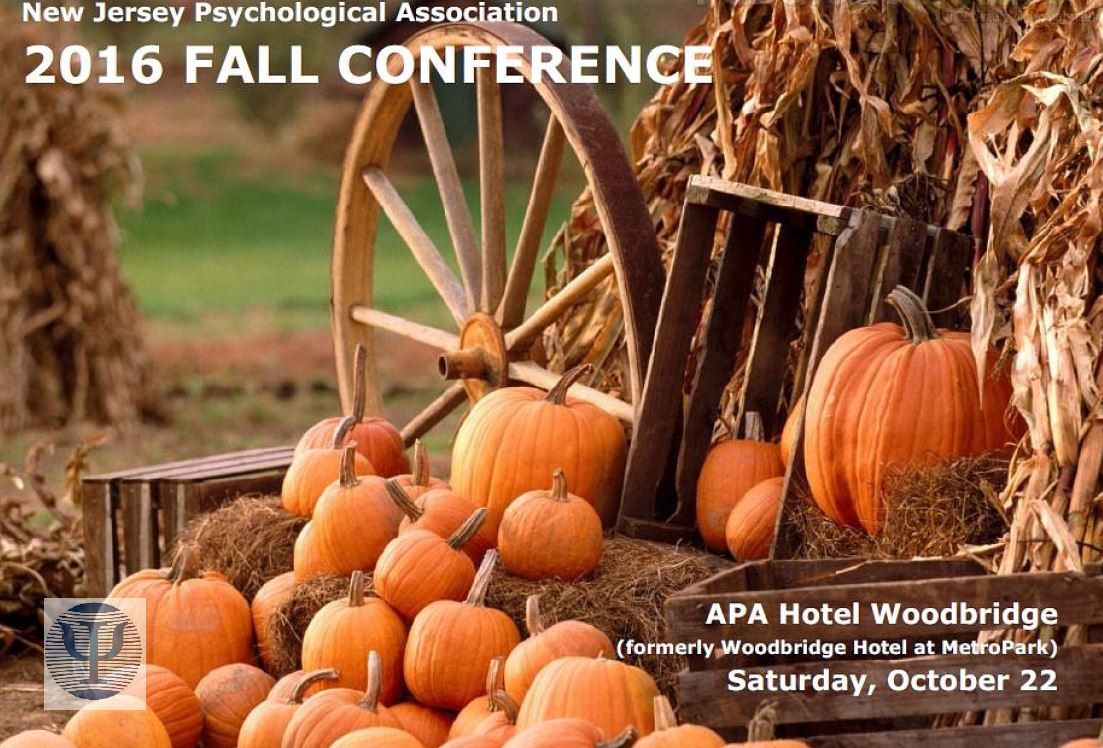Next Saturday, October 22, 2016, I will be giving a presentation entitled “Intergenerational Transmission of Adult Trauma in the Family and Its Impact On Relationships Among Adult Siblings” at the 2016 Fall Conference of the New Jersey Psychological Association (NJPA, http://www.psychologynj.org/) in Iselin, NJ.
I will present a synopsis of current empirical findings from trauma studies, epidemiological studies of adult onset trauma, and research on intergenerational transmission of trauma in afflicted populations. The presentation will aim at helping the audience integrate empirical perspectives on with contemporary theoretical conceptualizations of attachment and intersubjectivity regarding the effects of parental (late onset) trauma in the family. The presentation will draw in particular on the large body of research that has accumulated over the past several decades on survivors of the Holocaust and their descendants. This population presents valuable insights into the long-term effects of parental traumatization especially since, as a group, survivors showed good post-trauma adaptation and their families did not live under continued conditions of community danger or poverty. Despite the relatively good coping and adaptation evidenced by the survivors, various levels of persistent trauma-related imprints colored their interactions with their children and grandchildren, and these “echoes” of the trauma reverberate in family dynamics and in the subjective experiences of their offspring.
I will discuss a common central organizing pattern in children of survivors of trauma that I have come to describe as the “dual reality of trauma”, and review characteristics which have been empirically observed, suggesting a profile of co-existing vulnerabilities and resiliencies manifested in both survivors and their children. I will focus on observations that show sub-clinical yet powerful psychological organizing patterns in the lives of children of survivors of trauma. Fields et al. (2013), who studied transmission of trauma in families of survivors of the Khmer Rouge regime in Cambodia concluded: “Parents who continue to be psychologically affected by past trauma, such as trauma stemming from genocide, may communicate—even if indirectly—their emotional vulnerability to their children and thereby instill inordinate concern in the children for the parents’ welfare”.
I suggest that different children in the family co-construct different, often polarized, relational adaptations to the concern about the parents’ emotional needs and well-being. Observations from clinical and less formal meetings with adult children of Holocaust survivor will be presented that often show accentuated sibling differentiation and de-identification in family roles and relational styles of adaptation. Such differences are often accompanied by a negative quality of the sibling relationships. It will be proposed that emotional and relational (dissociated) enactments of unsynthesized parental trauma polarize the sibling relationships. The differences between siblings can and often do get in the way of working well around the renewed need to co-operate and be in close contact around issues related to the care of aging and ailing parents. The differences between the siblings and associated mutual resentments often cause, in later life, dissolution of ties between their families. It will be suggested that such processes represent intergenerational transmission of effects related to parental trauma that extend beyond the second-generation and impact the larger relational context in trauma-exposed groups.
The presentation will touch upon persistent misconceptions about trauma that characterized psychoanalytic formulations that were used regarding Holocaust survivors and later, Vietnam veterans, which tragically constrained the professional response to survivors of adult onset trauma. The discussion will contrast the assumption of “primacy of predisposition” that characterized outdated psychoanalytic views of adult onset trauma, with current evidence-based, transactional models of resilience and recovery from trauma. The latter, based on extensive empirical and epidemiological studies, show that the maintenance of post-traumatic reactions, even late-onset of symptoms, as well as recovery, are related to both risk and protective factors that are “braided” together and co-exist within the individual as well as in the individual’s relational context and larger social environment.
Finally, recent findings from social neuropsychology regarding the dangers of unintentional dehumanization of patients in healthcare will be presented. It will be suggested that findings indicate an elevated potential for dehumanization in the relationship between elderly trauma survivors and those who treat them. Most importantly, some simple and pragmatic ways to effectively counter processes that lead to perception of particular patients as “less human than me” will be reported.
The Conference Brochure, with more information, can be found here :
Click to access Fall%20Conference%202016%20Brochure.pdf
Irit Felsen


Leave a Reply